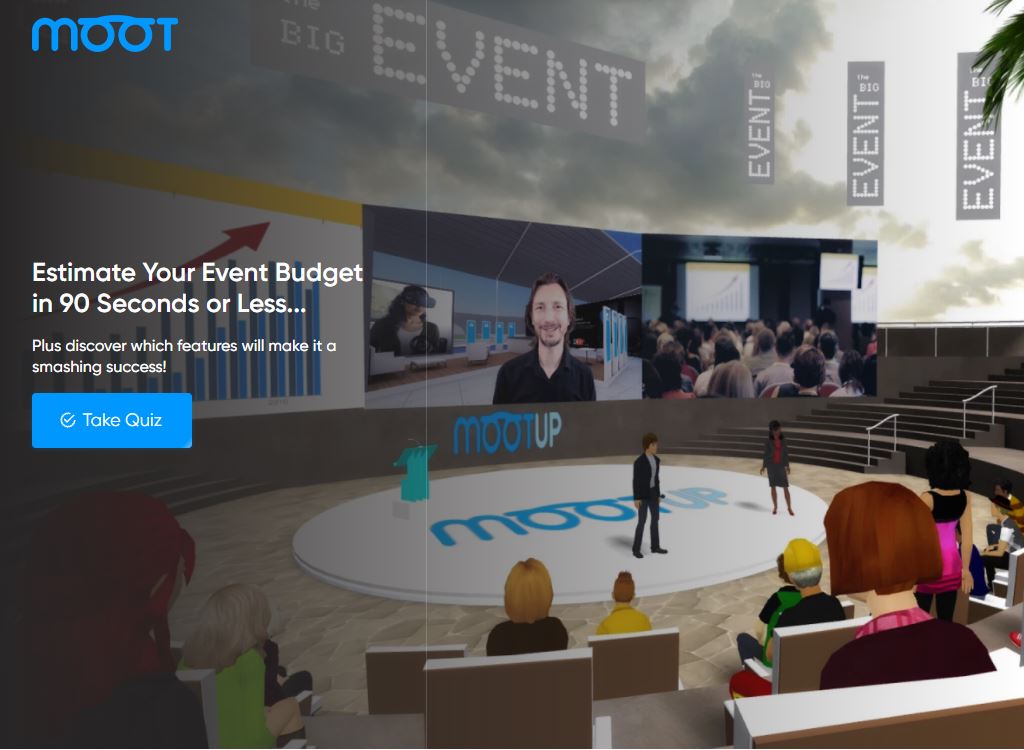As businesses and organizations strive to stay connected with their stakeholders, corporate events virtual has become a popular way to host meetings, conferences, and other gatherings. Corporate events virtual offer numerous benefits, such as cost savings on travel expenses and the ability to reach a wider audience. With careful planning and execution of these events, companies can measure success regarding attendance numbers or participant feedback. By taking advantage of the potential offered by virtual corporate events, businesses can create an engaging experience for attendees that is both memorable and successful.
Table of Contents:
- Benefits of Corporate Events Virtual
- Types of Corporate Events Virtual
- Planning for Corporate Events Virtual
- Executing Corporate Events Virtual Successfully
- Measuring the Success of Corporate Events Virtual
- FAQs about Corporate Events Virtual
- What types of virtual corporate events are available?
- How can I ensure a successful virtual corporate event?
- What technologies are necessary for hosting a virtual corporate event?
- How do I engage my audience during a virtual corporate event?
- Are there any benefits to hosting a virtual corporate event over an in-person one?
- Conclusion
Benefits of Corporate Events Virtual
Hosting corporate events virtually offers several benefits, including cost savings, increased reach, and improved engagement.
Cost Savings:
Virtual events can be far less expensive than in-person due to the reduced costs associated with a venue rental, catering, and travel expenses. Virtual event platforms are typically more affordable than physical venues for hosting large audiences. Event organizers can also use free video conferencing tools like Microsoft Teams or Zoom for smaller meetings or webinars.
Increased Reach:
Online events offer a wider audience reach since attendees don’t need to attend an event to participate physically. This allows event professionals to connect with potential customers from all over the world at once without having to worry about geographical limitations or travel restrictions that may have been previously encountered when organizing traditional live events. It also opens up opportunities for larger-scale multi-day conferences and exhibitions as they no longer require the extensive planning and setup time that comes with physical gatherings.
The numerous benefits of virtual corporate events can help organizations save money, reach a wider audience, and increase engagement. With the different types of virtual events available, companies have more options than ever for creating successful experiences.
Key Takeaway: Virtual events offer numerous advantages, such as saving money on venue rental and catering costs, expanding reach to global audiences with fewer geographical limitations, and providing improved engagement opportunities. Hosting corporate events virtually can be a cost-effective way of reaching new customers while achieving tremendous success over traditional live gatherings.
Types of Corporate Events Virtual
Organizations have been utilizing virtual gatherings as an ever-increasingly popular approach to organizing corporate occasions. From webinars and seminars to networking events and trade shows, virtual events offer a range of options for businesses looking to engage with their audiences cost-effectively. When planning for a successful virtual event, it’s essential to consider the type of event you want to host and how best to use technology to create an engaging experience.
Webinars and Seminars are great ways for businesses to share information or insights with their audience without having them physically present at the exact location. By leveraging video conferencing tools such as Microsoft Teams or Zoom, attendees can quickly join from anywhere worldwide without needing additional equipment or software downloads. Additionally, these platforms allow organizers greater control over who is allowed into the session while providing interactive features like polls and Q&A sessions that can help keep attendees engaged throughout the presentation.
Platforms such as LinkedIn Live provide an excellent opportunity for professionals in any industry sector to connect rather than gather at physical locations virtually. Moderators have greater control over who can chat via chat during live streams, thus encouraging engagement among large audiences swiftly and effectively. Moreover, users worldwide can join in on topical conversations within their respective fields instantly.
Trade Shows & Conferences are becoming more popular as hybrid experiences, where some components remain online. At the same time, other elements take place in-person gatherings when possible due to safety concerns related to the COVID-19 pandemic restrictions globally. This allows organizations greater flexibility by creating digital versions of exhibition halls, keynote speakers, breakout sessions, roundtables, workshops, etc., that still maintain much of what makes past events successful while reaching wider audiences than ever before. Leveraging technology such as virtual reality (VR) helps ensure attendees stay engaged even if they cannot attend physically by providing unique immersive experiences they cannot find elsewhere.
Types of corporate events virtual can be tailored to suit any organization’s needs, and planning for these events is essential for success. With the right platforms and tools in place, creating an engaging agenda will help ensure a successful event.
Key Takeaway: Virtual events have become an excellent way for companies to host corporate functions cost-effectively and engage with their audiences. From webinars, seminars, and LinkedIn Live streams to hybrid trade shows & conferences utilizing VR technology, businesses can reach out further than ever while providing an immersive experience that attendees won’t forget.
Planning for Corporate Events Virtual
Planning a successful virtual corporate event requires setting goals and objectives, choosing the right platforms and tools, and creating an engaging agenda.
Planning both short-term and long-term objectives is essential for a successful virtual corporate event. Short-term goals might include increasing attendees’ engagement or generating more event leads. Long-term goals could be building brand awareness or strengthening relationships with current customers. To reach the set goals, you can devise particular strategies to accomplish them at the event.
Choosing the right platform is critical when hosting a virtual corporate event, as this will determine how well your message is delivered to your audience. Different options, such as Microsoft Teams, Zoom, WebEx, or even custom-built solutions, are available depending on what content needs to be presented at the event (i.e., video conferencing tools). It’s also essential to think about other elements, such as networking opportunities for attendees, which can be done through dedicated chat rooms within some of these platforms or through social media integration like Twitter chats.
Proper planning is essential for a successful virtual corporate event, and with the right strategies in place, you can deliver an engaging experience. Executing these events successfully requires promoting your event effectively, providing quality content, and leveraging technology to enhance engagement.
Key Takeaway: When planning a successful virtual corporate event, it’s essential to set clear goals and objectives while choosing the right platform for delivering content. To ensure attendees reap the full benefits of their virtual corporate event, it is essential to create networking possibilities. All this requires careful consideration and preparation ‘behind-the-scenes’ so everything runs smoothly on the day.
Executing Corporate Events Virtual Successfully
Promoting Your Event Effectively:
A successful virtual event requires promotion to reach a wider audience. Utilize social media platforms to draw attention and encourage registration for your event, thus increasing its reach. Additionally, create engaging visuals for each forum to attract potential attendees. Utilize email campaigns to encourage people to register for your event and keep them informed about updates leading up to the day of the event.
Several vital elements should be considered when providing high-caliber content for virtual events. Interactive activities like polls or Q&A sessions with speakers can add a part of the engagement, as well as videos and recordings from past events. Networking opportunities allow attendees to connect, while sponsors’ products or services could be showcased in an exhibition hall. Creative methods of delivering live and on-demand content are also essential for keeping audiences engaged and entertained – offering a little something for everyone. Keywords: interactive activities, engage the audience, networking opportunities, exhibition hall, creative delivery methods

With the right tools and strategies in place, executing corporate events virtually can be a successful endeavor. Measuring the success of these virtual events is essential to ensure that they continue to provide value for all involved parties.
Key Takeaway: To ensure a successful virtual event, promoting the event on social media platforms and through email campaigns is essential. Additionally, interactive activities such as polls and Q&A sessions should be incorporated into content delivery to engage attendees while providing ample networking opportunities. Creativity is vital when delivering live and on-demand content for an engaging experience.
Measuring the Success of Corporate Events Virtual
Measuring the success of virtual corporate events is essential for event organizers and professionals to understand how their events performed. Tracking attendance and participation can provide valuable insight into attendees’ overall engagement, while collecting feedback will help identify areas for improvement in future events. Analyzing performance metrics can also indicate as to how well different elements were received by the audience.
Tracking attendance and participation is critical when measuring a virtual event’s success. It helps determine if goals have been met or exceeded, such as reaching a certain number of participants or ensuring that attendees remain engaged throughout the program. Organizers should exploit tech, e.g., Microsoft Teams or Zoom, to monitor participant conduct in real time and make necessary changes instantly.
Collecting feedback from attendees is another crucial aspect when evaluating a virtual event’s success. This could be done through surveys sent out after the program has concluded or even during it using interactive polls and Q&A sessions with speakers. Gathering this information provides invaluable insights into what worked well for your audience and what didn’t so you can tailor future programs accordingly.
Examining performance markers is another approach to measure a virtual event’s success; this can include monitoring viewership statistics (e.g., total views), average viewing time (i.e., how long viewers stayed tuned in) across all channels used, social media reactions (likes/shares/comments), etc. By looking at these data points together, you will understand which parts resonated most with viewers, allowing you to create better experiences for them moving forward.
Simplify attendee engagement with MootUp – your immersive 3D experience is accessible with just one click on any device, be it a smartphone, tablet, laptop, or VR headset. Boost engagement with various features, including gamification, over 1,000 gestures, and a range of social interactions built into the platform.
Key Takeaway: Measuring the success of corporate events virtual is essential, so tracking attendance and participation and collecting feedback from attendees are both key. Analyzing performance metrics such as viewership numbers and social media engagement can give a clear picture of what resonated with viewers, allowing future events to be tailored accordingly – hitting the nail on the head every time.
FAQs about Corporate Events Virtual
What types of virtual corporate events are available?
Virtual corporate gatherings are gaining traction due to their affordability and adaptability. With a no-code platform, event industry professionals can produce and host virtual conferences, summits, trade shows, product launches, webinars, seminars, and workshops in the metaverse. They can also create hybrid events that combine physical venues with online elements for an enhanced experience. All these types of events offer a range of features, such as live streaming video capabilities, real-time chat functions, and interactive content modules like polls or quizzes, which help engage attendees worldwide.
How can I ensure a successful virtual corporate event?
Proper planning and preparation are essential to ensure a successful virtual corporate event. Begin by setting clear goals for the event, such as increasing brand awareness or connecting with customers. Think about the material shown during the event, such as engaging displays or live-streamed talks. Utilize available technologies to enhance user experience; this includes incorporating features like chatrooms and polls into your platform. Lastly, create an effective marketing plan to reach target audiences and promote your event in advance. With these steps, you can confidently host a successful virtual corporate event.
What technologies are necessary for hosting a virtual corporate event?
Hosting a virtual corporate event requires the use of various technologies. These include web conferencing software such as Zoom, Webex, or GoToMeeting to facilitate video and audio communication between attendees. Streaming platforms like YouTube Live or Twitch are also necessary for broadcasting the event online. Event management software is also essential for registration and ticketing purposes. Ultimately, VR can be employed to construct immersive 3D settings that enable participants to investigate a dynamic world at the moment on their occasion.
How do I engage my audience during a virtual corporate event?
Engaging your audience during a virtual corporate event requires creativity and the right tools. Consider leveraging interactive elements such as polls, surveys, Q&A sessions, live chat rooms, and breakout groups to keep attendees engaged. Additionally, you can use audio/visual aids like video streaming or webinars with accompanying slides to provide an immersive experience. Finally, ensure ample time for networking opportunities so attendees can build relationships in real-time. You can create a genuinely engaging virtual event experience for all involved using these tactics.
Are there any benefits to hosting a virtual corporate event over an in-person one?
Yes, there are many benefits to hosting a virtual corporate event over an in-person one. Anyone with an online connection can access virtual events; their reach is much broader than in-person gatherings. Furthermore, virtual events require less time for setup and planning and lower costs due to reduced overhead expenses such as venue rental fees or catering services. Additionally, the data collected from these events is more comprehensive since it allows tracking user engagement across multiple platforms. Finally, virtual events provide flexibility when accommodating last-minute changes or unexpected circumstances that may arise during the event.
Conclusion
Organizations can now create engaging and interactive experiences for their audiences by utilizing corporate events virtually. With careful planning, execution, and measurement of the event’s success, companies can host successful online events that reach a larger audience than ever before. Understanding the various benefits and types of virtual corporate events available today and how to plan for them effectively will ensure your organization hosts memorable virtual gatherings with significant impact.
With the MootUp platform, you can ensure the future readiness of your Metaverse event technology infrastructure. The browser-based platform provides easy access to all attendees, regardless of their smartphone, tablet, laptop, or VR/AR headset, without downloading or installing software.
Try MootUp, the revolutionary no-code platform that allows you to easily create and host virtual or hybrid events in the metaverse. Take your corporate events to a whole new level with our innovative solutions!

